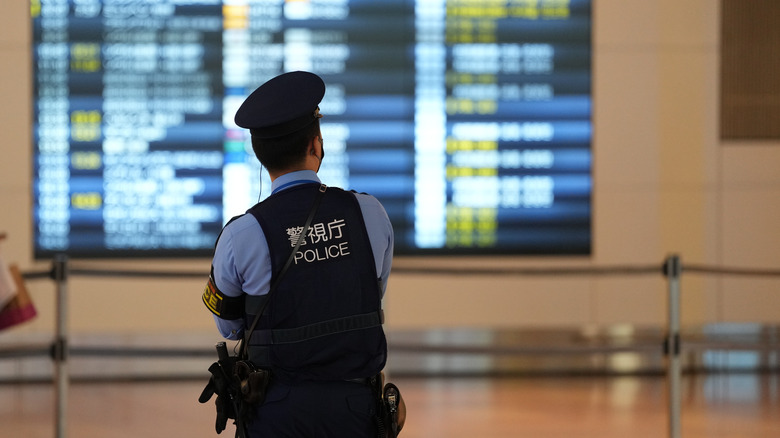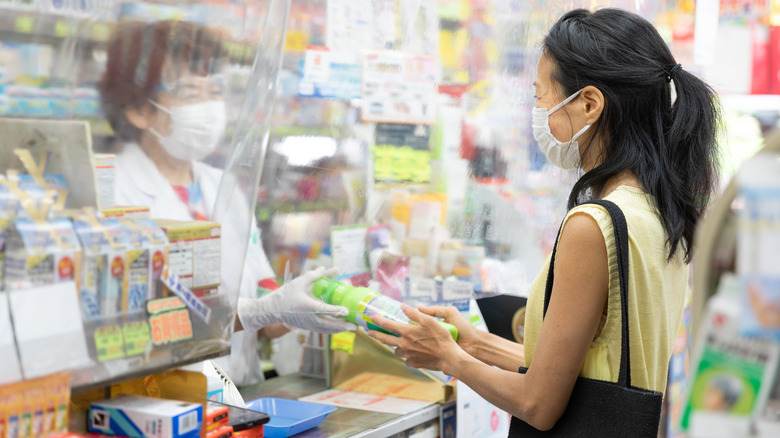NyQuil. Sudafed. Tylenol Cold. Advil Cold & Sinus. These are all common brands of non-prescription drugs that you can buy over the counter in America. If you get the sniffles just before traveling to Japan, you might pack any one of them in your bags and think nothing of it. That would be a mistake, as these same everyday medicines are liable to get you in trouble with customs should they search your bags at the airport. Japan has different laws when it comes to medicine, and in some cases, even with a valid prescription, you could get arrested for bringing the wrong thing into the country.
You can bring a one-month supply of prescription medicine and a two-month supply of vitamins, contact lenses, or nonprescription medicine. Yet that’s contingent on the kind of medicine and whether it’s legal in Japan. Anything more than a one- or two-month supply requires applying for a special import certificate beforehand called the Yunyu Kakunin-sho.
Unfortunately, some drugs for the treatment of mental health, including Adderral for ADHD, are not permitted. With drugs like Valium, containing psychotropics, there’s a limit based on dosage, so you’ll need to check the active ingredient against the Narcotics Control Department’s list. The NCD also has a controlled substances list you can review, showing how stimulants like amphetamines are strictly prohibited. Codeine, morphine, and oxycodone, among others, are considered narcotics. You’ll need to submit an application form for those to a Regional Bureau of Health and Welfare before traveling.
The Yunyu Kakunin-sho and Japanese drugstores

Here’s a list of pharmaceutical ingredients that are banned without a prescription in Japan. The Yunyu Kakunin-sho application, which needs to be approved before you visit, could even be required for something as simple as 200 milligrams of aspirin or more than one asthma inhaler. Consult the Ministry of Health, Labour, and Welfare and its Q&A for more information on drugs and “quasi-drugs.” Whatever medicine you bring, it should only be for personal use. It’s best to have prescription drugs stored in their original container, with an accompanying doctor’s note.
Let’s say you’re coming from the U.S. or UK and you intend to maximize your 90-day, visa-free stay in Japan. If you need three months’ worth of medicine, you can apply for the Yunyu Kakunin-sho certificate through one of two regional health bureaus. The Kanto Region, where Tokyo is located, is served by the Kanto-Shin’etsu Regional Bureau ([email protected]). Places like Okinawa, or big Japanese cities trending for travel like Osaka, are served by the Kinki Regional Bureau ([email protected]). When in doubt, email the bureau for clarification.
To buy Japanese cold medicine, Sun Drug and Matsumoto Kiyoshi are two convenient, nationwide drugstore chains. Another one that’s widespread in Kanto and both Shizuoka and Yamanashi Prefectures (where Mount Fuji stands) is Welcia. If you have trouble reading any Japanese product labels in these stores, you can use your phone camera and an app like Google Translate to decode the labels or overcome the spoken language barrier.
Don’t do a McCartney

While medical marijuana is increasingly common stateside, it’s still a no-go in Japan. Just remember the famous case of the jailed ex-Beatle. Even music icon Paul McCartney was once arrested for flying into Tokyo with marijuana. It was his first time in Japan in 14 years, and he spent 9 days in jail before he was deported, leaving his concert tour canceled. To avoid something similar happening with your own travel plans, the U.S. Embassy warns that all forms of marijuana, including CBD oil, are illegal in Japan.
Even if you’re just an everyday rock star, living your best travel life, common sense dictates that you run the risk of being detained should you attempt to smuggle drugs into a foreign country. Yet the same principle applies to less obvious pharmaceuticals, all those “quasi-drugs” like decongestants, vis-à-vis Japan. Even cosmetics have some quantity restrictions; you’re not allowed to bring more than two dozen lipsticks.
In Singapore, chewing gum is banned, so Japan isn’t the only Asian nation where you might run into problems with a common product. What may seem harmless when you have a cold could lead to travel trouble, so just try visiting a local drugstore in Japan. If you know the name of the drug you need, you could even try testing out your Japanese there. For Kakkonto, a type of traditional kampo medicine used to fight early cold symptoms, you could ask, “Kakkonto ga arimasu ka?” (Do you have Kakkonto?)

